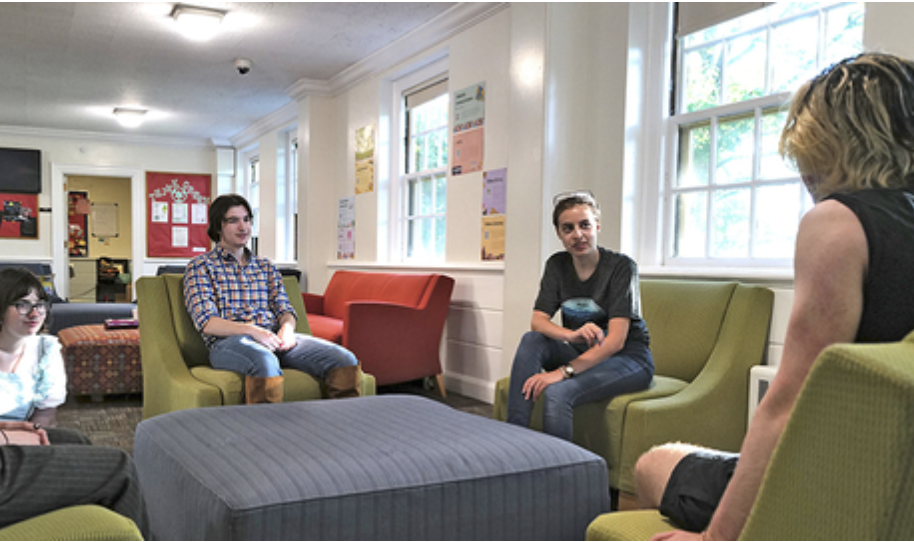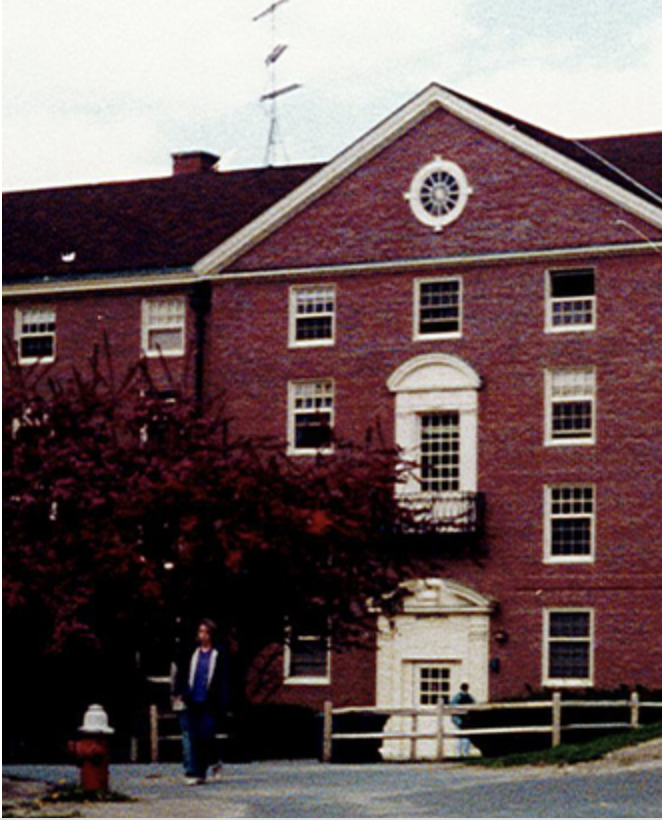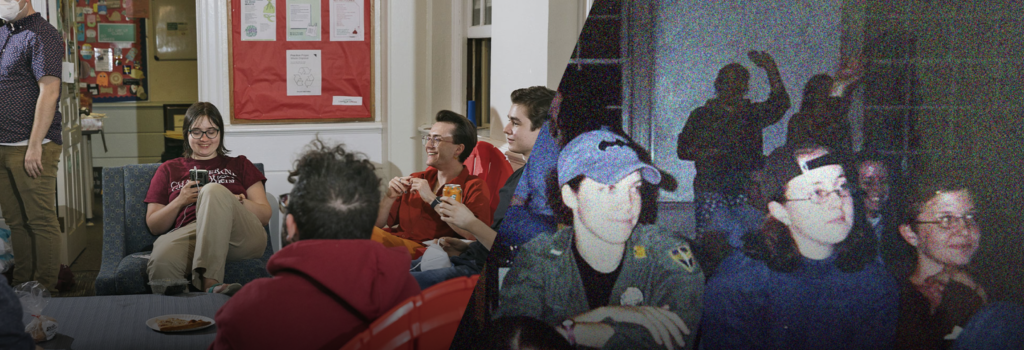Living Authentically: Spectrum Residential Community At UMass Supports LGBTQ+ Students By Creating A Home That Lets Them Thrive.

Robert Cahill (in plaid) chats with Spectrum residents. Photo: UMass.edu
Source: UMass News and Media
AnnMarie (Peavy) Thorpe ’96 transferred to UMass Amherst from a small Christian college in the south. “I left knowing that I needed to find a campus where I could be my full self,” she remembers. As a young woman who had recently realized she was gay, she longed to find a place where she could be free to explore her identity.
Thorpe — now the university’s director of disability services — never expected what she found. “The UMass community blew my mind,” she recalls. Almost immediately after coming to UMass Amherst, she discovered Spectrum, the defined residential community founded in 1992 for LGBTQ+ students — the first of its kind in the country. Her application to become a residential advisor (RA) was accepted, and Thorpe became one of the first students to help mold the program in its formative year.
“I’m forever grateful that this program provided me a soft place to land during a tumultuous time.”
AnnMarie (Peavy) Thorpe, ‘96

Though it provided Thorpe and her peers with a sense of belonging and camaraderie, Spectrum (then called the “Two in 20 Floor”) was born out of urgency. In the early 1990s, life was different — sometimes dangerous — for the LGBTQ+ community. Genny Beemyn, director of the Stonewall Center at UMass, explains, “Back in the day when it was first created, [Spectrum] was designed to protect students, and the location was not publicized.” Discreetly located on the fourth floor of Mary Lyon Hall, students could come and go from the building without fear of being outed.
Today, while many people live in Spectrum to meet other LGBTQ+ students, it still provides a crucial sense of safety and comfort. “Spectrum is an important space for queer college students to freely express and explore their identity, whether they are out or closeted,” explains Robert Cahill, a history major enrolled in the University to Schools program and a Spectrum RA. “Most importantly,” he says, “it alleviates a lot of the safety concerns of gender-segregated housing and bathrooms for trans and gender-nonconforming students.” Spectrum provides “a space where students can be open in their identities, [so] they can focus on honing their academic talents,” Cahill points out.
“With a community going through shared living experiences, students are able to rely on each other to foster acceptance, empowerment, and belonging,” says Tyler Bradley, the current residence director. As a defined residential community, Spectrum enhances those experiences, providing programming focused on LGBTQ+ themes and a spring immersive learning experience, which takes residents to off-campus destinations for opportunities to connect and learn outside the classroom.

“All those years ago, I knew what we were doing was special,” says Thorpe, who received the Chancellor’s Award as a student for her work at Spectrum and on the Chancellor’s Task Force for LGBT Affairs. “Hey, we were the first in the country!” she boasts. “I’m forever grateful that this program provided me a soft place to land during a tumultuous time.”
Celebrate 30 Years of Spectrum At UMass Homecoming on 10/28
More Information About Defined Residential Communities at UMass
